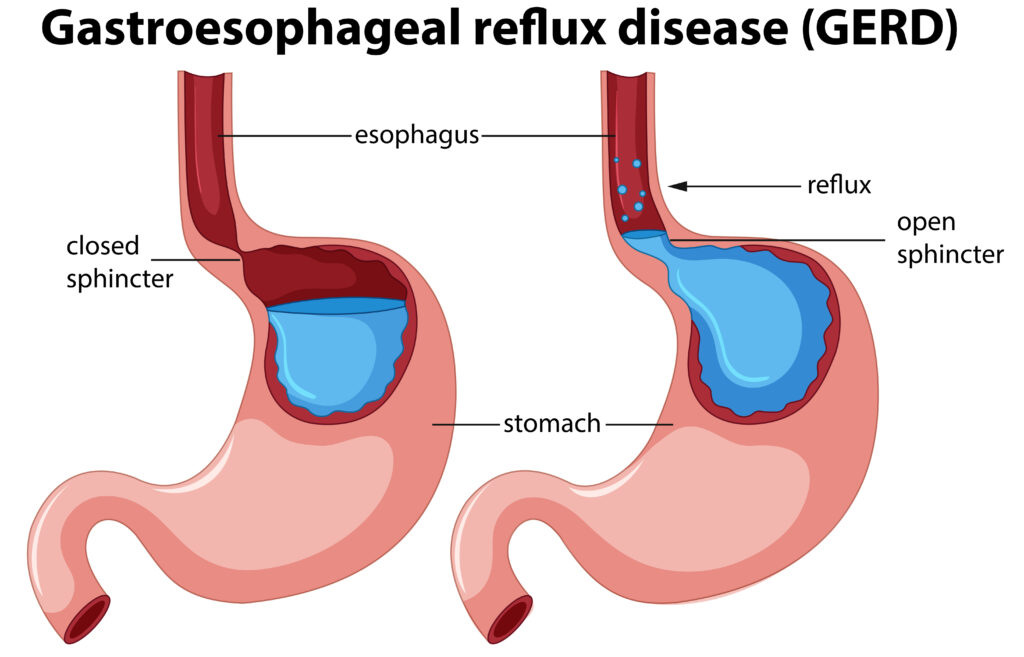Gastroesophageal Reflux Disease (GERD) is a common digestive disorder that affects millions of people worldwide. GERD is characterized by the backward flow of stomach acid into the esophagus, which can cause heartburn, regurgitation, and other symptoms.
Symptoms of Gastroesophageal Reflux Disease
The symptoms of GERD can vary greatly from person to person, but some of the most common symptoms include:
- Heartburn: This is the most common symptom of GERD, and is characterized by a burning sensation in the chest that can spread to the neck, throat, or jaw.
- Regurgitation: Some people with GERD may experience regurgitation, which is when stomach acid flows back into the mouth.
- Chest Pain: Some people with GERD may experience chest pain, which can be mistaken for a heart attack.
- Difficulty Swallowing: GERD can cause difficulty swallowing, which is called dysphagia.
- Hoarseness: GERD can cause hoarseness or a sore throat, which is caused by acid irritating the voice box.
- Bad Breath: GERD can cause bad breath, which is caused by acid reflux into the mouth.
Diagnosis of Gastroesophageal Reflux Disease
The diagnosis of GERD is typically based on a patient’s symptoms and a physical examination. Your doctor may also perform tests, such as an endoscopy, barium swallow, or pH monitoring, to confirm the diagnosis of GERD.
Treatment Options for Gastroesophageal Reflux Disease
There is no cure for GERD, but there are several treatments that can help manage the symptoms. Some of the most common treatments include:
- Lifestyle Changes: Making changes to your lifestyle, such as losing weight, avoiding fatty and spicy foods, and avoiding lying down after eating, can help improve GERD symptoms.
- Medications: There are several medications that can help relieve GERD symptoms, including antacids, H2 receptor blockers, and proton pump inhibitors.
- Surgery: In severe cases, surgery may be necessary to correct GERD. The most common surgical procedure for GERD is called a Nissen fundoplication, which involves creating a new valve to prevent acid reflux.
In conclusion, Gastroesophageal Reflux Disease (GERD) is a common digestive disorder that affects millions of people worldwide. GERD is characterized by the backward flow of stomach acid into the esophagus, which can cause heartburn, regurgitation, and other symptoms. While there is no cure for GERD, there are several treatments that can help manage the symptoms, including lifestyle changes, medications, and surgery. If you are experiencing symptoms of GERD, it is important to discuss your symptoms with your doctor and work together to develop a treatment plan that works for you.


